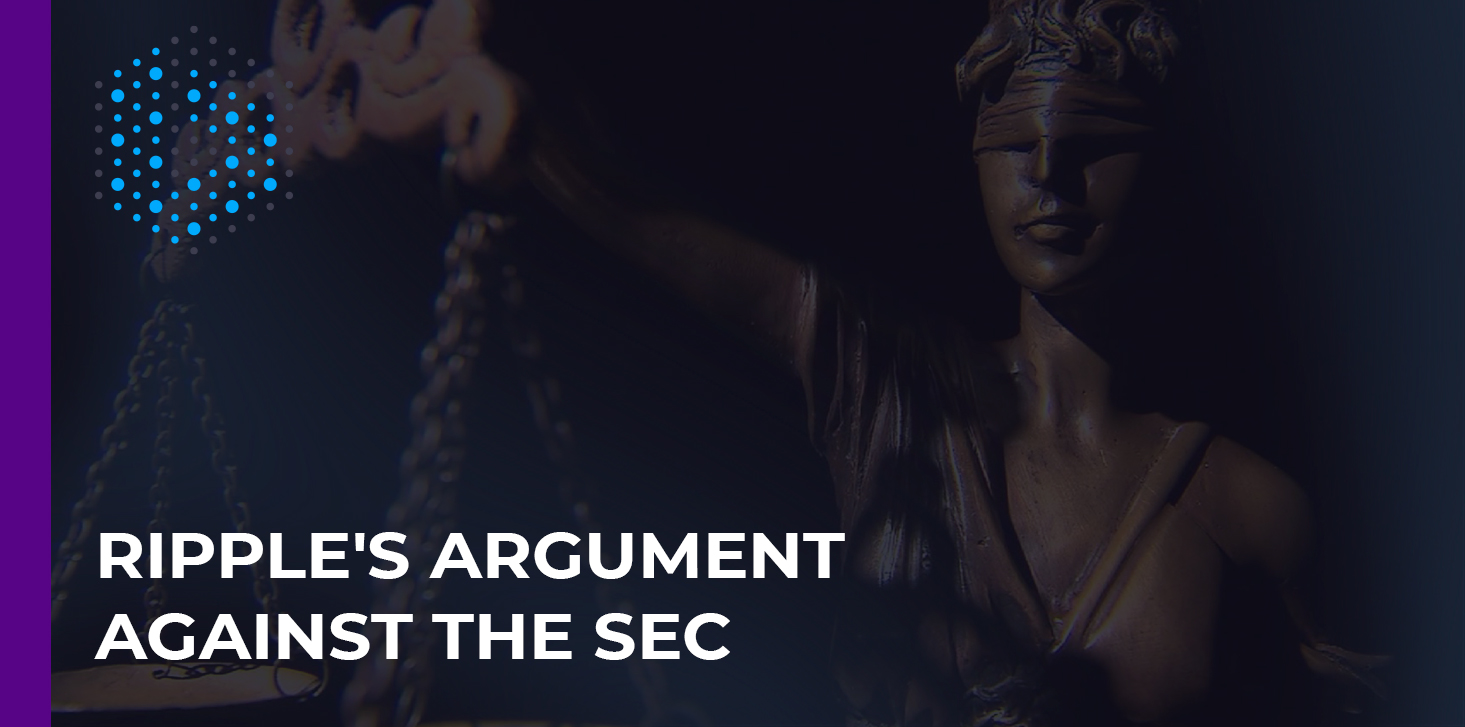Ripple’s “Eye-popping Argument” at a Pre-trial Hearing with the SEC Could Tip the Scales in Its Favor
The long-awaited pretrial hearing between Ripple Labs and the Securities and Exchange Commission began yesterday. Although both sides presented arguments that they had previously used, Ripple presented a new and important detail that could play a huge role in the litigation.
Ripple’s Argument against the SEC
Ahead of the pretrial proceedings, the SEC changed its complaint against Ripple. It now seems to focus on whether “certain XRP distributions” are an investment contract, as opposed to condemning all asset sales coming from a fintech startup. The SEC, which sued Ripple in December over the sale of XRP, believes the token is an unregistered security, causing Ripple and its executives to violate securities laws and make $ 1.3 billion in profits
Attorney Jeremy Hogan, who closely followed the entire ordeal, analyzed the virtually organized pretrial hearings between the SEC and Ripple. While he had hoped to gain a clearer understanding of District Judge Analisa Torres ‘position on XRP, he praised her for her neutrality, saying she remained consistent about the crypto company and its token as a “digital asset” or “cryptocurrency” throughout the hearing.
Hogan was not very impressed with the SEC’s arguments, and said the Commission would likely focus on two main points: how Ripple presented and interpreted XRP to buyers back in 2013, and how it was talked about and sold as securities. Hogan expressed surprise that the SEC did not mention the Kik lawsuit, in which the technology company Kik was sued by the SEC for unregistered securities over the Kin token and found guilty.
Ripple Arguments
While Hogan confirmed that the legal representation of both the SEC and Ripple was top-notch, he seemed more impressed with Ripple’s line of defense.
Ripple’s lawyer said that $ 66 billion worth of transactions were processed using XRP, and Ripple was not involved in most of them in any way. In addition, in 2015, the Financial Crimes Enforcement Network already ruled that XRP is a currency. The legal defense line went on to claim that virtually every country in the world has ruled that XRP is not a security.
But what was actually a “bombshell effect” according to Hogan, was that Ripple made public an incident in 2019 when an unnamed cryptocurrency exchange approached the Securities and Exchange Commission demanding clarity on XRP. The exchange’s attempts to get the green light to trade XRP on its platform were met with an inconclusive response from the SEC. Since the SEC’s response was unclear, the exchange conducted its own research on the crypto asset and concluded that it was not a security, and subsequently placed XRP on its exchange.
Hogan noted that when asked if XRP is a security and can be sold, the SEC did not respond negatively. So, what has changed from 2019 to the present? If anything, Hogan claims that over time, XRP becomes even more decentralized.
Since Ripple’s legal defense appears to trump the SEC’s, the fintech company could have a major impact in a lawsuit preventing XRP from operating in the US.
